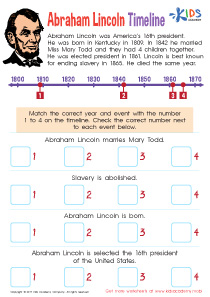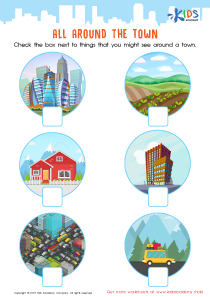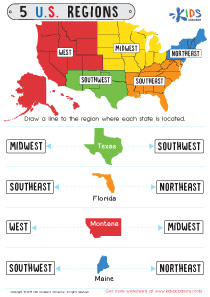Enhancing Reading Comprehension Normal Governance and Civics Worksheets for Ages 5-7
6 filtered results
Difficulty Level
Grade
Age
-
From - To
Subject
Activity
Standards
Favorites
With answer key
Interactive


The Constitution Worksheet
Teach your child America's history and identity: have them complete the Constitution of the United States of America worksheet. It's essential for our nation that our future generations understand the importance of our constitution. Make sure your child is prepared!
The Constitution Worksheet
Worksheet
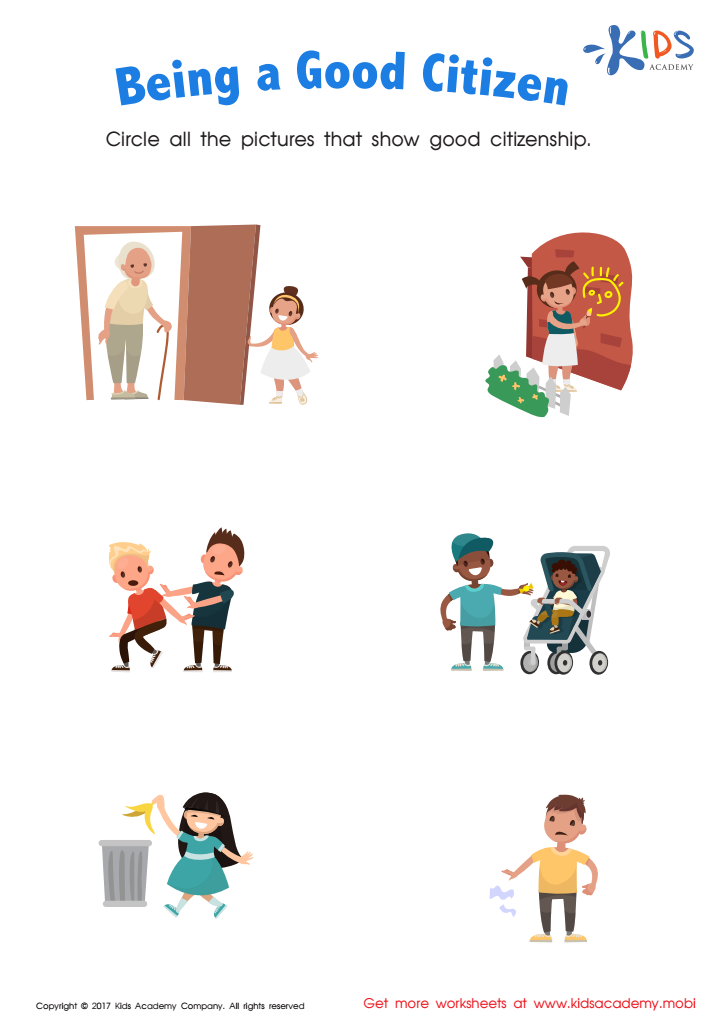

Being a Good Citizen Printable
Help your child learn the importance of being a good citizen with this fun worksheet! It reinforces positive behaviors in the community and teaches essential skills like character. Try it today!
Being a Good Citizen Printable
Worksheet
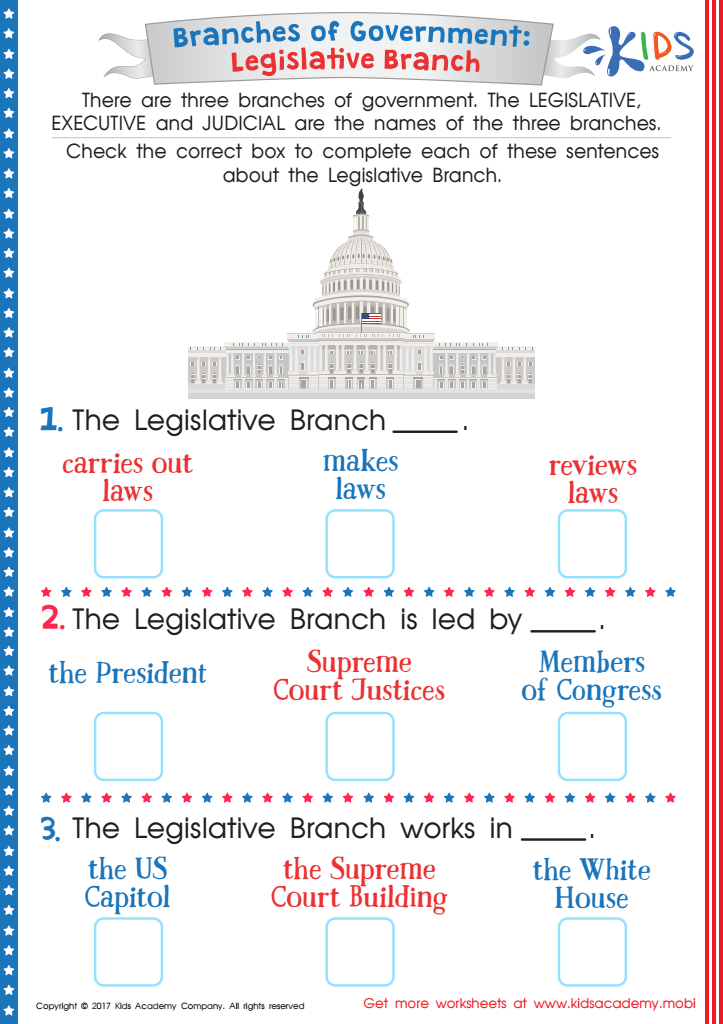

Branches of the Government: Legislative Branch Worksheet
The US legislative branch creates laws which the judicial branch enforces. This worksheet helps kids learn about this important branch of government, including who the leaders are and where Congress meets.
Branches of the Government: Legislative Branch Worksheet
Worksheet
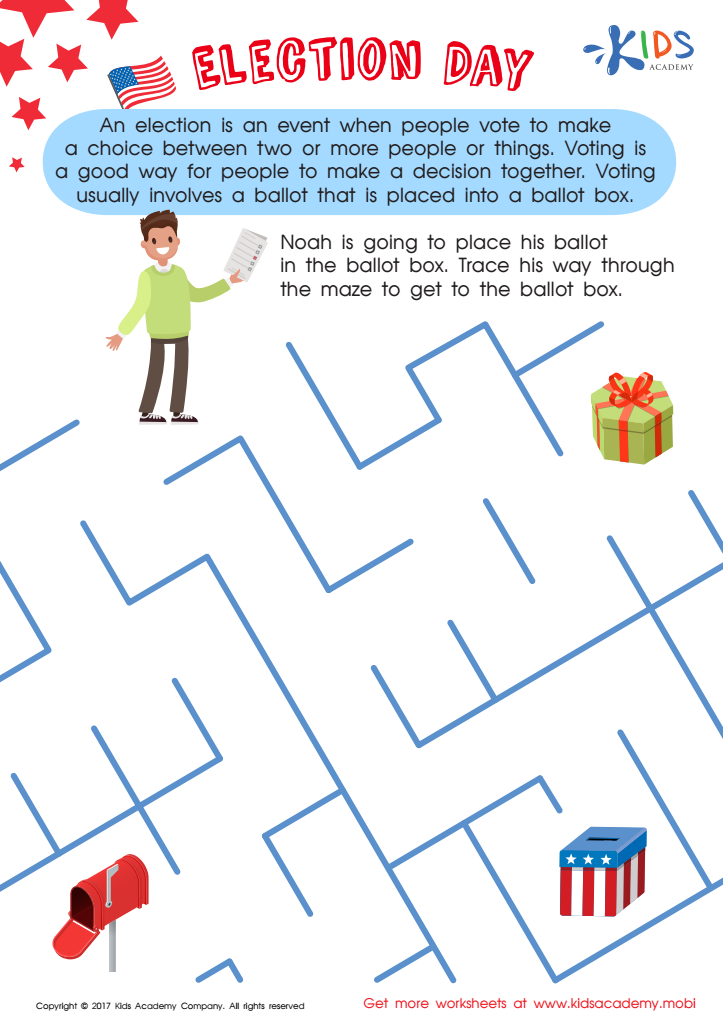

Election Day Worksheet
Get the election day worksheet PDF and teach them the value of voting - an integral part of our democracy! 80 words
Election Day Worksheet
Worksheet
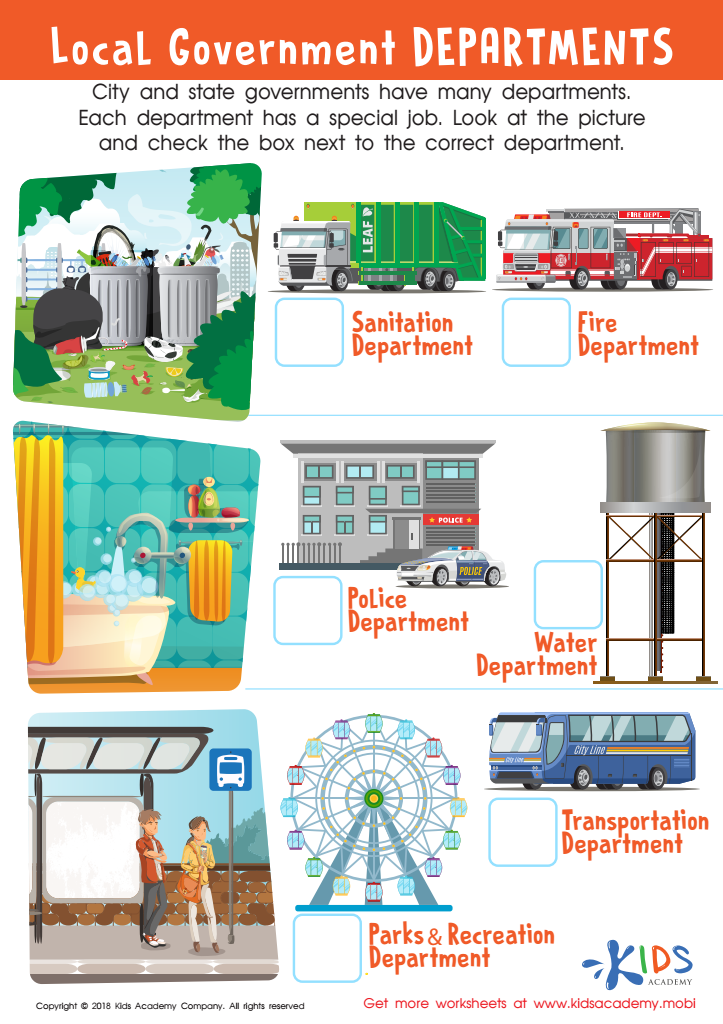

Local Government Departments Worksheet
State and city governments have departments that each have special tasks. Ask your kids what local departments do and look at the picture with them to check the correct department box.
Local Government Departments Worksheet
Worksheet
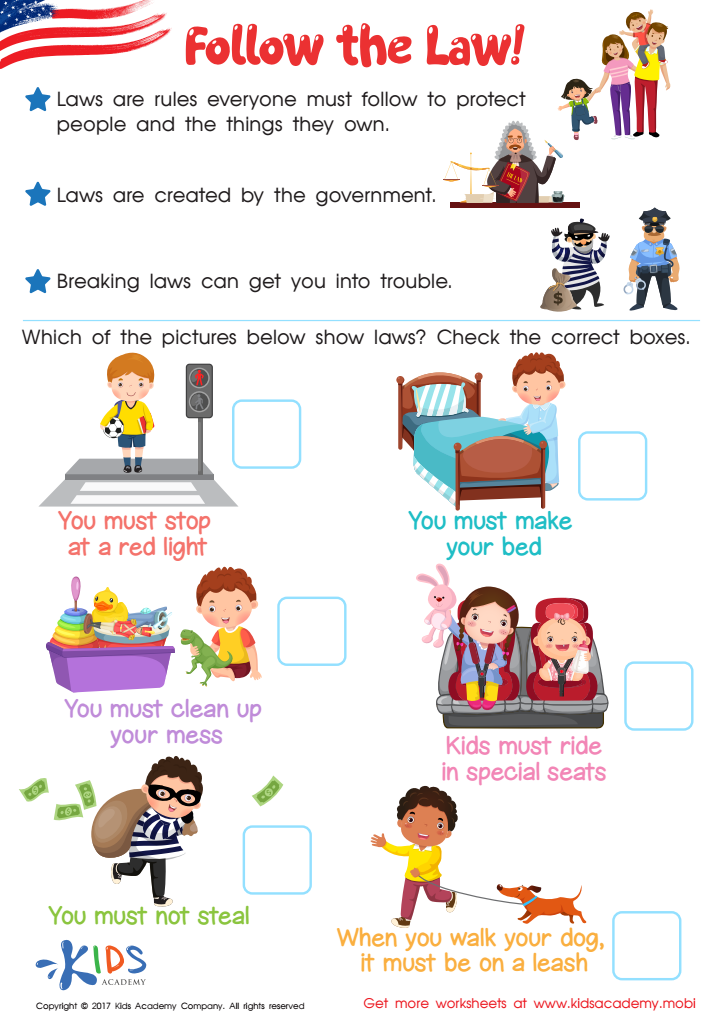

Follow the Law Worksheet
Kids should understand the difference between laws and household rules. Worksheets for 2nd grade review these differences, teaching kids more about life in their community. Breaking the law can lead to harsh consequences, so understanding the rules of home and public spaces is essential.
Follow the Law Worksheet
Worksheet
 Assign to the classroom
Assign to the classroom
